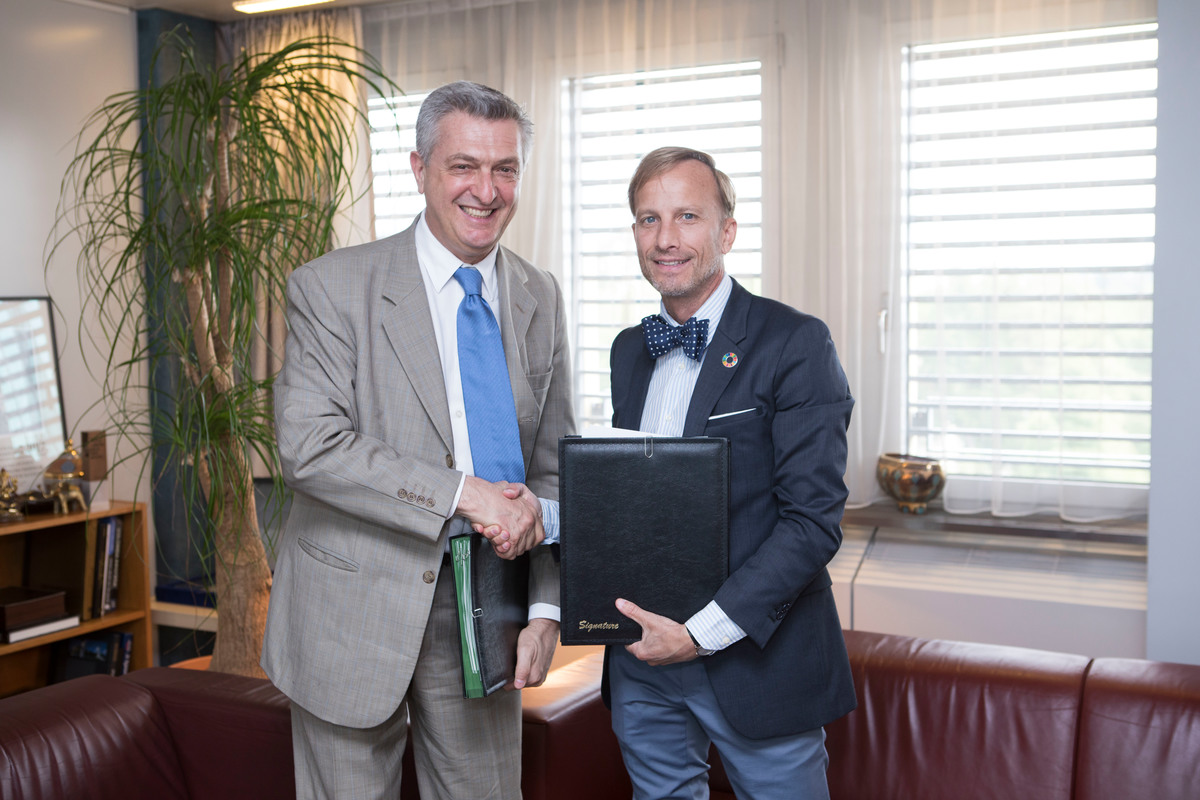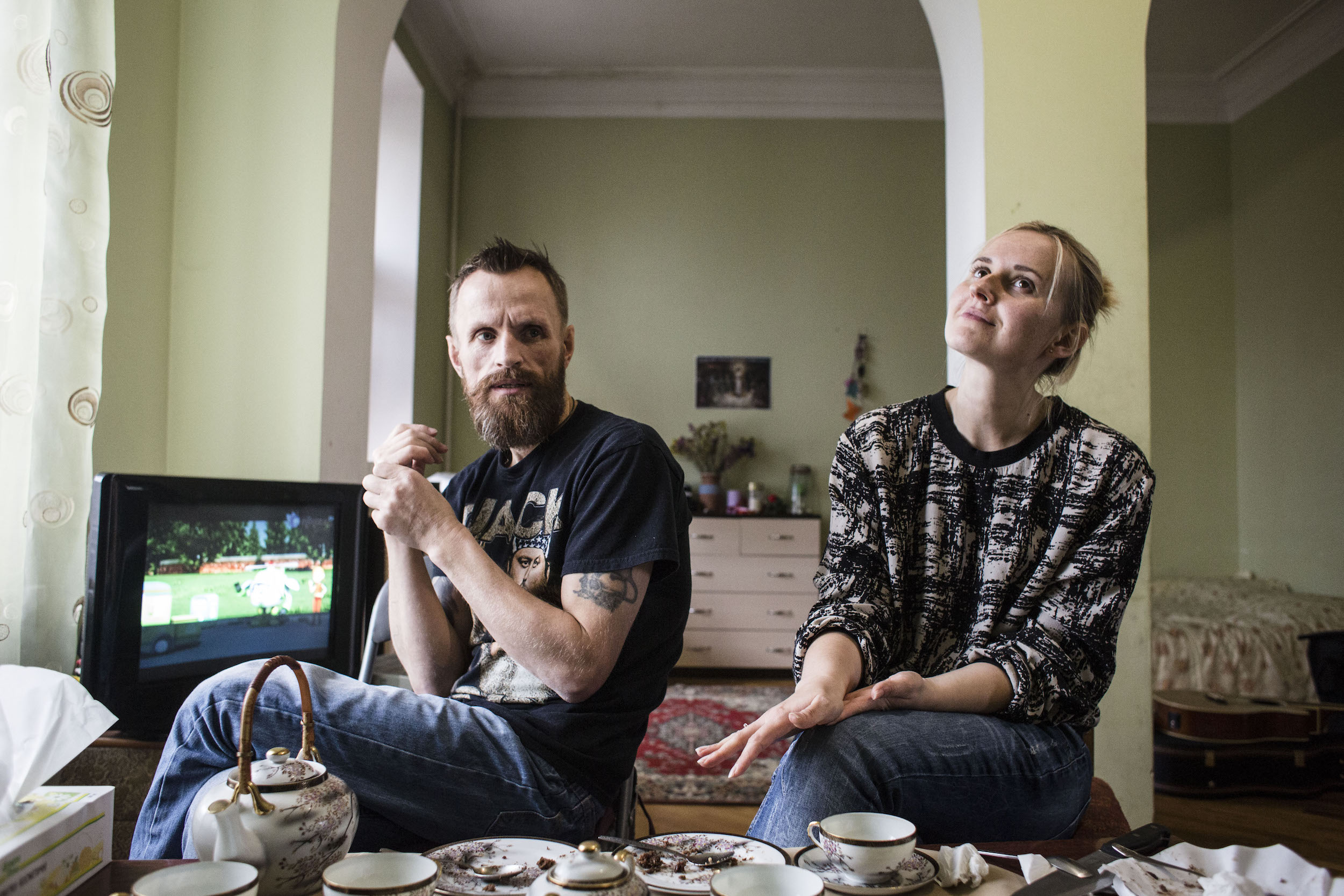UN agencies join forces in preventing HIV in Zambian refugee camps
UN agencies join forces in preventing HIV in Zambian refugee camps

LUSAKA, Zambia, March 29 (UNHCR) - Two United Nations agencies collaborated this week on a programme to prevent the spread of HIV and other sexually transmitted diseases among refugees, with the UN Population Fund (UNFPA) donating 1.2 million condoms to UNHCR for refugees in Zambia.
The donation followed a Behaviour Surveillance Survey (BSS) in Mwange and Kala camps, which shelter Congolese refugees in northern Zambia, that revealed condom use was low among refugees - far lower than among the surrounding Zambian population.
However, HIV prevalence among Congolese refugees in these two camps run by UNHCR and the Zambian government is only 2.4 percent, which is significantly lower than the Zambian national average of 19 percent. Maintaining that low infection rate through measures like promoting the use of condoms is vital.
"This donation will have a far-reaching impact in the prevention of new HIV infections among the refugee communities in Zambia," UNHCR Acting Regional Representative Dillah Doumaye said at the hand-over ceremony.
Doumaye said the 1.2 million male condoms received were part of more than 11 million male and 162,000 female condoms donated by UNFPA to UNHCR operations worldwide.
UNFPA Country Representative Deji Popoola emphasised that condoms must be readily available, either free or at low cost, and promoted in ways that overcome social and personal obstacles to their use.
"We are aware that refugees interact in many ways with the local host community," said Dr. Popoola. "The problems of the refugees, therefore, will become those of the hosts and vice versa. This is a clear indication that the spread of HIV and STIs [sexually transmitted infection] knows no boundaries."
The BSS was carried out in 2006, but the results were only released last week at a workshop in Lusaka to representatives of the government, the United Nations, implementing partners of UNHCR and other agencies.
The survey found only 29 percent of refugees in Kala camp used a condom when last having sex with a non-regular partner - despite being readily available in the camp - compared to 60 percent for residents in surrounding communities. In Mwange, 27 percent of refugees and 40 percent of surrounding community residents used a condom at last sex with non-regular partners.
Furthermore, the report said despite high levels of knowledge about HIV and AIDS among refugees, they commonly engaged in behaviour that greatly increased the risk of HIV transmission such as transactional sex and having concurrent sexual partners.
The workshop concluded that, since the interaction of refugees and the host communities was observed to be very high, programmes should continue to target both groups.
"When we arrived in Zambia we found very few services, even for the locals. Now there are very good programmes," Kyato Mambwe, a refugee leader in Mwange camp, told the workshop. "Once we go back home, UNHCR and the government must not forget this community. The HIV and AIDS programmes must continue."
Among the recommendations was a call for parents to be involved in efforts to discourage early marriages. Youths should participate in discussions on avoiding high risk sexual behaviour. Myths and misconceptions that refugees hold should also be addressed to help remove negative attitudes towards people living with HIV and AIDS.
The workshop further recommended broad involvement in communications strategies for behavioural change, drawing in women's groups, youth groups, religious and traditional leaders and HIV/AIDS clubs in schools. It called for exploring new opportunities to communicate with refugees and the host community, such as local radio programmes. The participants wanted to see a strengthening of "know your status" campaigns that promote the benefits of having an HIV test.
Additional information on HIV and AIDS will be made available and incorporated into the voluntary repatriation operation that UNHCR is now discussing for the Congolese refugees in Zambia. Returnees who are well informed about HIV would carry that knowledge back to the Democratic Republic of the Congo and pass it on to their compatriots.
By Kelvin Shimo in Lusaka, Zambia








